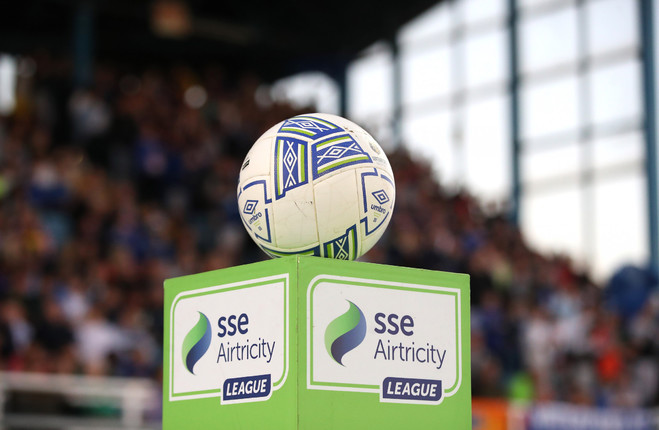THE FOOTBALL ASSOCIATION of Ireland believe they need to double the money they give toward youth development to return Ireland’s international teams to competitiveness.
Speaking at a briefing around the national underage leagues, FAI/League of Ireland academy development manager Will Clarke said the FAI need approximately €10 million per year to “to have a realistic chance of being competitive”, so they need to make up an annual shortfall of approximately €5.5 million.
That funding will be sought from multiple sources, including the government, Uefa, and Fifa. The FAI submitted an academy development plan and funding proposal to the government last November, though outgoing CEO Jonathan Hill was the main point of contact on the matter.
“There is a handover going on at the minute, but it would have been Jonathan dealing primarily with Government in terms of those conversations”, said Clarke.
The briefing laid out in stark terms the necessity that the FAI find the investment they need for academies. As it stands, Ireland average less than one full-time employee per academy across the country: among all countries across Europe, only Northern Ireland, Luxembourg, and Andorra have as few.
Ireland employs 10 full-time academy staff, which is pitiful in comparison to most European countries, including Poland (376 people), Portugal (315), Belgium (264), Denmark (140), and Sweden (120.)
LOI clubs are working off an annual academy budget of less than €500,000 each, which ranks among the minnows of Europe, including Estonia, San Marino, North Macedonia, Georgia, and Azerbaijan.
The FAI report that the best indicator to international success is a squad accumulating a high number of minutes across Europe’s top five leagues. Ireland’s numbers on this front have collapsed in the last decade. In 2012/13, 30 Irish players clocked up a total of 44,205 minutes in these five leagues, whereas in 2022/23 that dropped to 16 Irish players accumulating just 9,818 minutes.
“If we don’t get the funding, to be quite frank, things will continue as they are going”, said Clarke.
“Ireland will always have good footballers. We’ll always have players who are successful despite the system. What we want to do is make sure that more kids have a better opportunity to fulfil their potential. Going forward – and the figures and data don’t lie - we’re on a certain trajectory at the moment and we’re bottom of the table when it comes to all of those key metrics. They are the important issues that we face today. This isn’t a short term. There is no silver bullet here, there’s no ‘Ok, you get X amount of money tomorrow and we’re going to see results in 12 or 24 months’. It’s a medium to long term.
“To be fair to League of Ireland clubs and grassroots clubs, there are people throughout the country working night and day to do the very best job that they can with two hands tied behind their back. We are absolutely punching above our weight.
“People involved in football in this country, given the constraints they are working in, are doing an unbelievable job. Some clubs are bringing kids in at six, seven and eight, with some players progressing to academies, where academy coaches are giving up 25-30 hours a week on a voluntary basis to help kids.
“There is nothing in it for them other than wanting to make football better in this country and to help kids. That’s ultimately what it is all about.”
Asked how much damage was done to the funding pleas by Jonathan Hill’s recent appearance before the Public Accounts Committee, Clarke said it remained “business as usual” from his point of view.
“Even in my role as the academy development manager, we can only control what we can control”, said Clarke. “We’re doing what we can to make sure the current and future generations of kids are given a fair crack of the whip because unfortunately if you look at it, if you look at the lack of investment going back decades, the people who have suffered are Irish kids.
“That’s what it’s about. It’s not about any individual or a group of individuals, this is about kids. Unfortunately, for whatever reason, Irish kids haven’t been give the same opportunity as their counterparts in other European countries over the years. That’s what we’re working on night and day to try and improve.”


